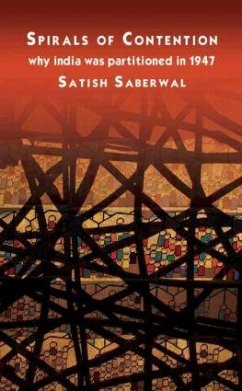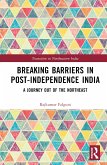The book examines the social and social psychological processes that led up to the Partition of the Indian subcontinent in 1947. It works from a dual corpus: the historians for medieval and modern India, the sociologists for Indian society. It moves back and forth between evidence and general, or theoretical, understanding, and focuses on social and psychological processes, placing the strictly political domain on the margin. It recognizes long-term continuities in the idiom of conflict (as well as of cooperation), and shows that, by 1900, the conflicts and the animosities were gathering a self-aggravating momentum. .








